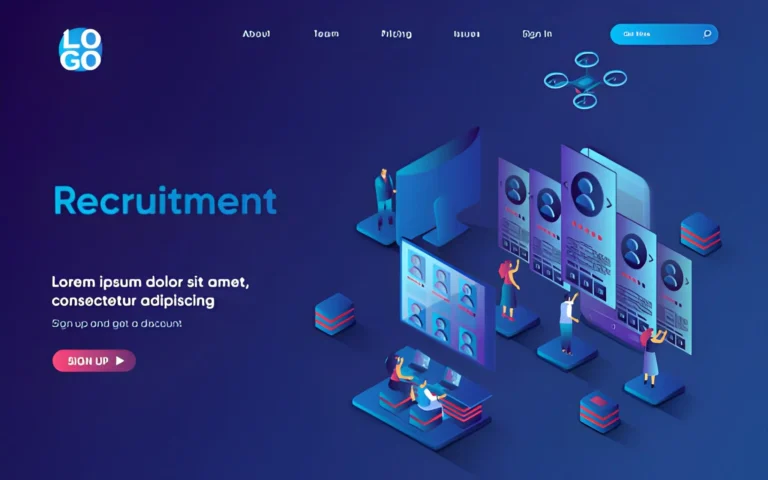How Saudi Businesses Are Engineering a New Digital Era For IT Augmentation

Saudi Arabia’s digital revolution is not a campaign—it’s an economic transformation. Every new startup, app release, or government technology project is centered around one mission: to make innovation infrastructure.
The shift is visible everywhere—from AI-powered logistics apps to e-learning platforms built for Gen Z. Behind these digital products are mobile app development company in Saudi driving user-first solutions, supported by IT staff augmentation companies that deliver the deep technical muscle to keep pace.
This isn’t about chasing trends. It’s about engineering the next layer of Saudi’s economic DNA.
Why Is Saudi Arabia’s App Ecosystem Accelerating Faster Than the Region?
Saudi’s tech growth isn’t random—it’s systematic. Three things are pushing the momentum forward:
- Government-backed digitization: Vision 2030 didn’t just promote digital adoption—it made it an obligation. Smart cities, e-governance, and fintech policies are creating a stable launchpad for innovation.
- Capital meets confidence: Venture funding is flowing into startups that can scale through technology, not just products.
- A generation that was raised on the internet: The educated, aspirational, and mobile-first Saudi young have established a new benchmark for consumers: everything that isn’t digital is invisible.
Together, these factors have made the Kingdom the test-bed for app-driven growth in the area.
What Defines a Modern Mobile App Development Company in Saudi?
The app development companies of today’s Saudi Arabia are not the software houses of yesteryear. They are more like digital strategy partners—constructing platforms that address genuine business issues rather than merely coding.
Here’s how they are defined:
- Local fluency, global standards: They work with Arabic UX subtleties but adheres to Silicon Valley-level product blueprints.
- Data-driven product strategy: Every function is tested using analytics, not hypotheses.
- Platform-independent development: Flutter, React Native, and Kotlin are the norm; flexibility is a given.
- Security as a feature, not an afterthought: Data protection laws are strict—and developers build compliance directly into the architecture.
These firms don’t just make apps; they make business tools disguised as user experiences.
How Is IT Staff Augmentation Powering Saudi’s Digital Growth?
There’s a silent revolution happening behind the scenes. As digital demand spikes, talent gaps have become a major bottleneck. That’s where IT staff augmentation company enter the equation.
Saudi businesses are increasingly scaling their staff as needed, as opposed to overhiring or delaying debuts.
It’s changing the game in the following ways:
- Speed to market: With the help of international developers, projects that once took a year to launch are now completed in months.
- Scalable agility: Companies may grow or shrink without impacting internal processes.
- Access to great skills: Cybersecurity analysts, blockchain architects, and AI engineers are examples of specialty positions that may be filled in a matter of days.
- Cost optimization: Businesses pay for capability, not overhead.
In short, IT staff augmentation isn’t outsourcing. It’s strategic collaboration at speed.
Which Sectors Are Dominating Saudi’s App Development Scene?
Saudi’s app ecosystem is now diverse enough to show patterns. Five industries are dominating the innovation curve:
1. Fintech
Apps like STC Pay and Tweeq have normalized cashless living. New entrants are focusing on peer-to-peer transfers, micro-loans, and open banking APIs.
2. Retail & E-commerce
Platforms like Noon and Nana Direct depend on app optimization for velocity, retention, and hyperlocal personalization. Developers are working on AI-based recommendation engines and voice commerce.
3. Healthcare
Telemedicine is going mainstream. Saudi developers are creating HIPAA-compliant applications that facilitate prescription tracking, doctor conversations, and health analytics dashboards.
4. Education & Training
Edtech start-ups are developing Arabic-first learning ecosystems that combine gamification, AI tutors, and adaptive course flows.
5. Logistics & Mobility
From smart delivery networks to real-time fleet tracking, logistics apps are integrating IoT and predictive data models to reduce costs and optimize routes.
Each sector is building not just apps, but ecosystems—and that’s where Saudi’s market is outpacing others.
What Makes Saudi Developers Different From Global Counterparts?
The edge lies in cultural precision and contextual intelligence.
Saudi developers know the local consumer mindset—the manner users engage with notifications, payment processes, or Arabic UX trends. This enables them to create products that outside agencies tend to overlook.
But most significantly, they’re combining local knowledge with global engineering norms.
The outcome? Apps that function at Silicon Valley levels but speak Saudi sensibilities.
How Are Companies Balancing In-House and Augmented Teams?
The blended model has gone quietly mainstream.
Rather than depending only on internal teams or complete outsourcing, companies now integrate core teams + augmented specialists.
This is how this architecture appears:
- Core team: Is responsible for strategy, product vision, and stakeholder communication.
- Augmented team: Performs specialized tasks such as frontend optimization, QA automation, or AI model integration.
- Operational elasticity: Companies remain lean but act like large-scale businesses.
- Primary advantage: Each project receives creative guidance and technical accuracy without long-term burden.
How Emerging Tech Is Shaping App Development in Saudi
Saudi developers aren’t developing for today—they’re writing for tomorrow.
1. AI-Powered Automation
From chatbots to support to behavior-driven suggestions, AI is now part of product DNA.
2. Cloud-Native Architecture
Most new apps are developed on AWS or Azure with containerized microservices. This enables quicker updates, zero downtime, and enormous scale.
3. Blockchain Integration
Fintech and logistics firms are leveraging blockchain for traceability, smart contracts, and transparent payment systems.
4. IoT & Smart Cities
With NEOM and Red Sea projects, IoT-based apps are powering everything from energy tracking to mobility management.
These technologies aren’t future plans—they’re already embedded into Saudi’s app infrastructure today.
Why Custom App Development Beats Templates Every Time
Pre-made app templates appear cheap but are more expensive in the long term. Saudi businesses have caught on that customization is competitiveness.
A Saudi mobile app development company now begins every project with discovery sessions—audience, workflow, and KPIs—before they write a line of code.
Why it matters:
- Custom apps map perfectly with brand identity.
- Integrations are neater—no redundant plugins.
- Maintenance is easier as the codebase is proprietary.
- Scaling is organic, not artificial.
In a high-speed market, adaptability is not a choice—it’s survival.
How Saudi Companies Are Moving Beyond Downloads to Measure Digital Success
App downloads are vanity metrics. Serious players measure engagement, retention, and monetization velocity.
Saudi development companies today depend on analytics stacks that track:
- User stickiness: Active sessions per user per week.
- Conversion triggers: Which UX moments convert in-app spending or upgrades.
- Churn recovery: Effectiveness of re-engagement push notifications.
- Performance KPIs: Time to load, crash-free sessions, and latency under network fluctuations.
The shift from vanity to value metrics is what separates local apps from scalable digital products.
What Challenges Still Exist in Saudi’s App Development Market?
Even with all the progress, some challenges remain:
- Talent saturation: High demand for senior developers is pushing salaries up.
- Regulatory navigation: Data localization laws add complexity to cloud deployment.
- Cultural adaptation for global reach: Apps built for Saudi audiences sometimes struggle to scale internationally.
- Security standardization: With multiple frameworks in play, maintaining uniform cybersecurity practices is tough.
This is exactly why IT staff augmentation companies are vital—they help close these operational gaps quickly and cleanly.
What’s Next for Saudi’s Tech Future?
Saudi Arabia’s next wave of growth will depend on interdisciplinary innovation.
Expect to see:
- AI-first startups combining local insight with predictive technologies.
- Cross-border partnerships between Saudi technology companies and European or Asian development partners.
- Decentralized digital infrastructure as maturity takes hold in blockchain adoption.
- Diversification of talent—increased participation by women and foreign engineers in Saudi projects.
- Export of Saudi-developed apps to MENA and beyond.
In the tech industry, the goal is to lead from the front rather than catch up.
Wrapping Up
Clarity of goal and accuracy of execution are hallmarks of Saudi Arabia’s digital transformation.
A Saudi mobile app development firm contributes the innovation blueprint, which is data-driven, culture-sensitive, and user-first. Scalability, agility, and specialized knowledge are brought by an IT staff augmentation firm, which helps turn ideas into products that are ready for the market.
When combined, they provide the foundation of a new kind of growth that is quick, laser-focused, and unafraid.
The Kingdom is not merely developing apps. It is developing a future in which digital innovation underpins every business choice—and this time, the world is observing Saudi Arabia establish the standard.
Also Read- Financial Health Strategies for Busy Healthcare Professionals







